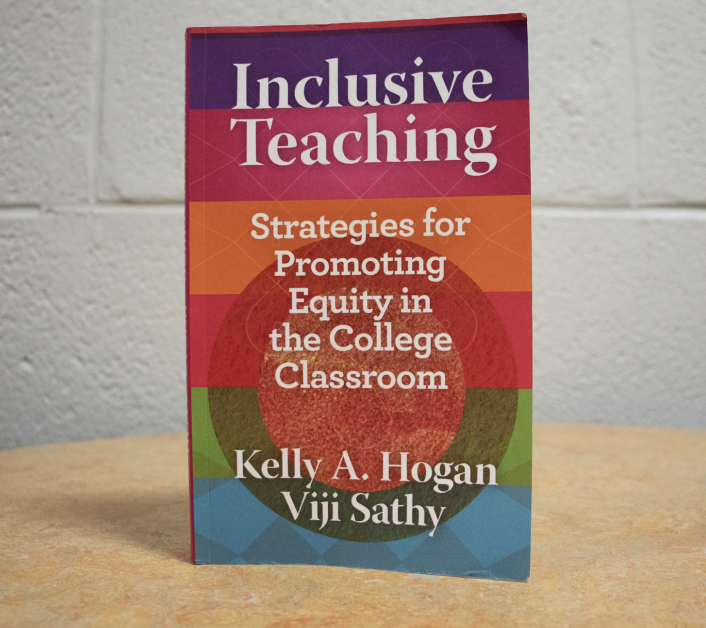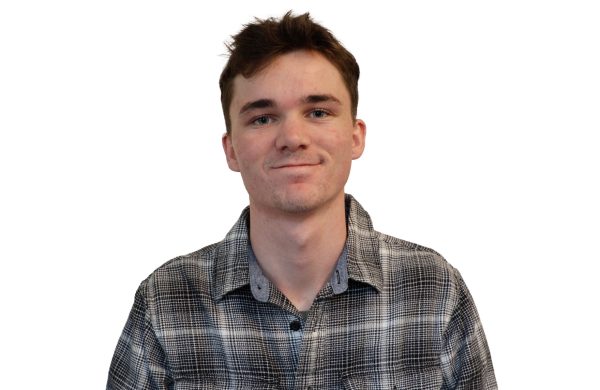A group of St. Joe’s faculty is participating this year in a professional development course on inclusive teaching.
Held monthly from October 2022 to April 2023, the Inclusive Pedagogy Learning Community for Faculty is coordinated and led by Janée N. Burkhalter, Ph.D., professor of marketing and associate provost for Diversity, Equity and Inclusion (DEI), and Chris Heasley, Ed.D., assistant professor of educational leadership and faculty liaison for DEI. It is co-sponsored by the DEI Office and the Office of Teaching and Learning.
Twenty-four professors are enrolled in the course.
“It’s a group of faculty who get together to discuss inclusive teaching practices, and how we can be better at being able to be cognizant of the students, different students’ learning approaches and learning styles so that we can then modify the way that we instruct so that all students are are able to thrive and be successful in the academic environment,” Heasley said.
The first of seven monthly sessions began on Oct. 3. Sessions take place through Zoom and are one hour and 15 minutes in length. Meetings consist of group discussions, based on assigned questions and readings from research articles and on the book “Inclusive Teaching: Strategies for Promoting Equity in the College Classroom” by Kelly Hogan and Viji Sathy.

PHOTO COURTESY OF CHRIS HEASLY
Heasley said professors need to continually learn to be better educators.
“Our ever-changing students with whom we interact require us to always be improving ourselves and getting better in our trade,” Heasley said. “Not just learning new content to provide to students, but also learning better ways of disseminating that content to the students.”
Over 40 applicants applied for the course, Heasley said, more than the number of available spots. Faculty from both the Hawk Hill and University City campuses and from a variety of discipline backgrounds, positions, genders and ethnicities were chosen to be enrolled in the course.
Rachel Sullivan, Ph.D., assistant professor of communications, said she applied for the course with the intention of bettering her practice as a professor.
“If you’re thinking compassionately with empathy about your students and making sure that your policies and your syllabus are inclusive of people with different abilities and from different cultures, I think that just makes for a better class, period,” Sullivan said. “For me, it was about becoming a better teacher just as a whole.”
Sullivan also said the inclusive learning pedagogy group has been a great networking opportunity, and she has been having conversations with professors who hold similar values to herself.
“When I see someone’s name who’s in the course being elected for Faculty Senate or College Council, I can say, ‘Okay, well, that’s a good person because this person cares about inclusion and diversity on campus,’” Sullivan said.
Paul Patterson, Ph.D., associate professor of English, is also participating in the course, and said he has already learned a lot from the readings and group discussion.
“Being diverse and inclusive is more about how you teach the material,” Patterson said. “Making sure students of different learning styles are able to have access to the tools they need, the resources they need, making sure that all voices are heard in discussion, things like that. So I think just a matter of really thinking intentionally and carefully about what it means to be inclusive is a big part of what I’ve been taking from it so far.”
Patterson said he thinks professional development opportunities are not only beneficial for faculty but for students as well.
Heasley said student feedback on professional development courses for faculty has been positive.
“Professional development opportunities like this allow for all of us to reconsider the way that we teach and look at opportunities to make it more equitable and inclusive for a varied student range,” Heasley said. “We have students who might have English as a second language, students who come from experiences where they’re not as prepared as other students.”















































